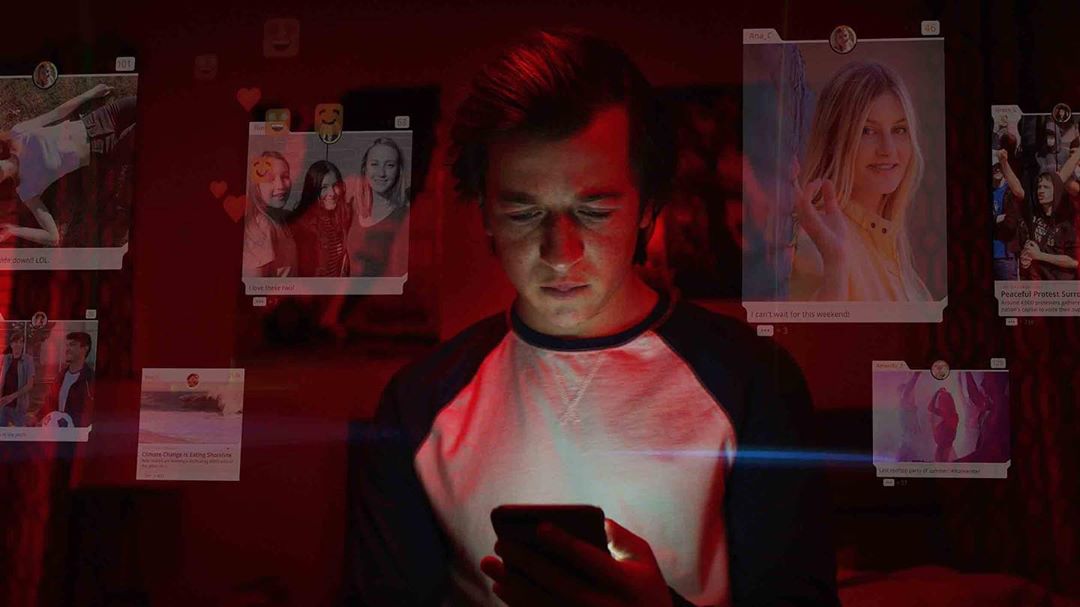If there ever was a case against allowing kids on social media, it’d be Netflix’s latest documentary – The Social Dilemma. The film feeds the concerns we’ve always had about Big Tech and its business model, and tells us it’s actually more insidious than we could know or imagine.
In The Social Dilemma, the case is made against the platforms with over 3.8 billion users on a daily basis, as the biggest existential threat to democracy today.
An exposé by former Big Tech employees
Produced by Jeff Orlowski, Emmy-winning director for the climate change documentary Chasing Ice, the film is meant to be an exposé on “the climate change of culture that’s visibly happening through our devices”.
Like the earliest climate change whistleblowers, former Big Tech employees comprise the bulk of the interviews; all speak directly to the camera sharing apocalyptic testimonies about the systems they helped to create. Amongst several big names, there’s Justin Rosenstein, the ex-Facebook engineer who helped create the infamous ‘Like’ button, Tristan Harris, previously a design ethicist at Google, and Tim Kendall, former president of Pinterest and director of monetisation at Facebook.
Fictional scenes of a tech-addicted family intersperse the interviews, serving to reinforce the worst consequences of social media. Chilling quotes add another layer to the dystopia, such as “There are only two industries that call their customer’s ‘users’: illegal drugs and software”. The combination brings up narratives we fear as much as we’re familiar with – the distorted self-image, mental health, and radicalisation of ideology.
Changing perceptions and propagating misinformation
Most worrying is the idea that we are the product, as is “the gradual, slight imperceptible change in our own behaviours and perceptions”. Functions like the vertical scroll and photo-tagging are revealed to be by design; backend algorithms never stop calculating the best way to keep us glued to our screens and thus exposed to online advertising. You wonder as you watch an ‘Inside Out’-esque sequence in the film – where a high-schooler is controlled by algorithm representations who sustain his attention at any cost – if that could happen to you too.
Misinformation in highly individualised feeds is another major theme – we see the implication of fake news served up by algorithms on the impressionable. While polarisation through Facebook isn’t news (remember the 2016 US elections?), the film points fingers at Facebook for profiting off disinformation and that model’s impact on democracy. Basically, when everyone operates on a different set of facts at scale, the lack of interest in the truth is to the detriment of order in society.
A call for regulation and ethical technology
It’s obvious, however, that the aim of the film is not to #cancel Facebook, or any other social media platform. Rather, the point is for people to be more aware of their online habits and to drive the call to arms for more regulation and ethical technology.
Some critics say the film was overly bleak in its portrayal and blame of social media, but I think it just brings to light existing fears in society so that we can talk about it. The next phase we need to move towards is compromise and balance of power, which can only be reached because this issue has now been to both sides of the extreme. To reach that middle ground, holding Big Tech executives accountable is just the beginning, as frequent policing by bodies like governments and the UN need to form the other half of the regulatory equation.
Breaking addictive habits
We, as consumers of social media, have a part to play as well. If awareness is the first step to any change, then this film has done what it’s set out to achieve. Don’t squander that newfound awareness. Break your habit of using social media on autopilot.
The film’s contributors provide advice to limit use like turning off all notifications on your phone, always fact-checking before sharing, and not clicking on recommended content. I’d like to also suggest measures such as removing social media from your computer’s bookmarked tabs (so it becomes less convenient than a click), and on the phone, removing them from the home page (so you always have to do an extra swipe to access them). Willpower is overrated, so we have to design strategies of our own to create the conscious habits we want to see. For the consumer, the lesson is to make your psychology work for you, not against you.




























